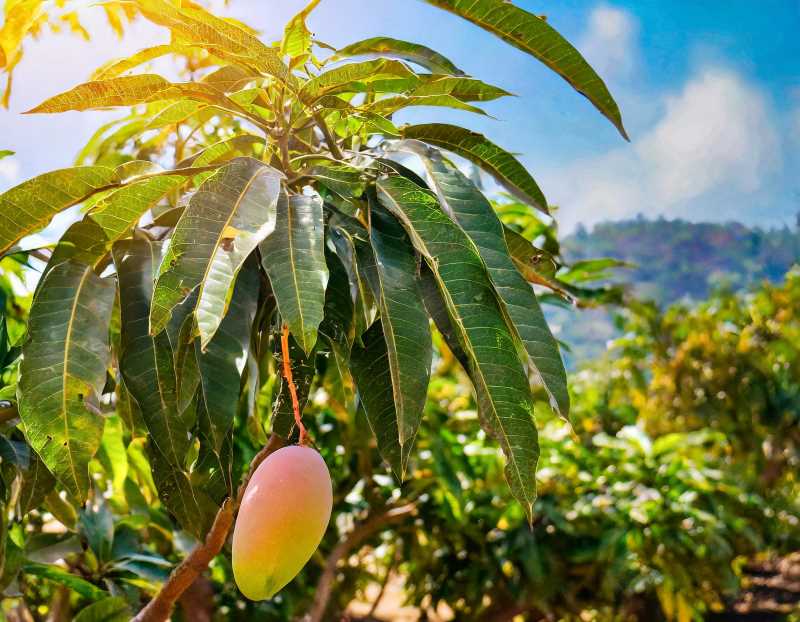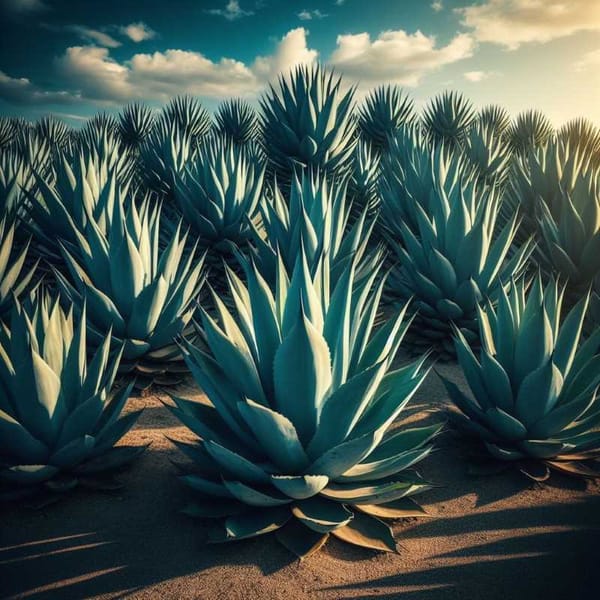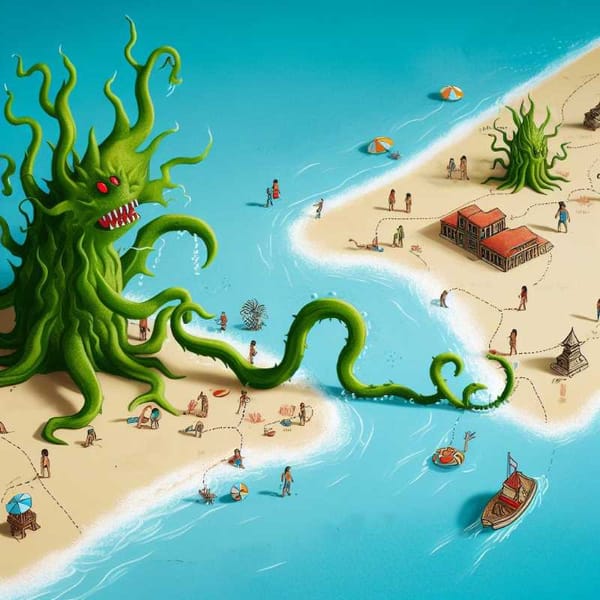How a Mango Harvest Brings a Village Together
A majestic mango tree defies the heat, transforming into a whimsical bounty. Don Arturo, the owner, grapples with the weight of its harvest — a metaphor for abundance and the importance of sharing.

The old farmer, Don Arturo, squinted up at the canopy of his prized mango tree. Its branches, once as stiff and proud as a soldier's salute, now drooped under the weight of an impossible bounty. They were ablaze with a curious color, not quite green, not quite flame – a fiery emerald that shimmered in the afternoon heat. Don Arturo chuckled. It was that time again, when his humble mango tree transformed into a living still life, a masterpiece painted by some cheeky god obsessed with the color green.
The heat, usually an oppressive bully, became a patient sculptor, coaxing the green globes into something more. The leaves, once vibrant umbrellas, had darkened, becoming a cool, secret cave beneath the blazed fruit. A stray breeze, a mischievous child perhaps, would occasionally send a blossom fluttering down, a snowflake in an artificial winter. This playful defiance did little to quell the undercurrent of nervous energy that buzzed around the tree.
The sap, oh the sap! It flowed so freely, turning the trunk into a verdant honeycomb. Within, a battalion of invisible bees, fueled by pure sunshine, toiled tirelessly, alchemizing sweetness into life. The plain, typically a combination of beige and brown, stretched out beneath the tree, its vastness emphasized by the vibrant green island above. A lone pijul, a small, curious bird, flitted between the leaves, its beady eyes alight with the promise of the coming feast.
The harvest, a yearly ritual of renewal, was upon them. Soon, the petacón, the green, unripe mango, would swell and soften, transforming into a riot of color and flavor. This abundance, however, filled Don Arturo with a peculiar anxiety. The mangoes, plump and proud, hung like a clutch of golden eggs cradled in a giant, green hen. They were a treasure, a gift from the sky, yet their very abundance threatened to tip the delicate balance of the landscape.
The mango tree, ironically, was a paradox. In the rural agrarian era, it was a chlorophyll shelf in a wild market, faithfully supplying the village with its bounty every six months. When the surada, the hot wind, roared in from the desert, it ripened the mangoes, turning them into living jars of unlabeled jam.
But the tree held more profound wisdom. When heavy with unripe fruit, it would bend its branches low, a gesture of humility, a way to kiss the morning dew. This simple act of reverence reminded Don Arturo of the tree's true power. Its lordship wasn't rooted in its bounty, but in its connection to the sky, the source of its magic. The weight of the mangoes, a temporary burden, caused the branches to dip, bringing the fruit closer to the ground, a reminder that the truest sweetness is often shared, not hoarded.
Don Arturo smiled, a plan forming in his mind. The coming harvest wouldn't just fill bellies, it would foster connections. He'd invite the whole village, turn the harvest into a festival of laughter and shared bounty. The mangoes, these gifts from the sky, would not only satiate appetites, but remind everyone of the precious balance between pride and humility, abundance and generosity. After all, what good is a single hen sitting on a mountain of gold, when the joy lies in sharing the warmth with your neighbors?




